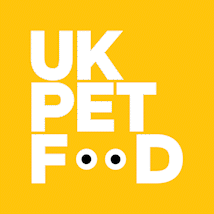The Pet Care Industry Calls For Government To Exempt Specialist Pet Shops From Emergency Closures
Dear Lord Gardiner,
Exemption of specialist pet shops from any emergency closures of retail outlets
The pet care sector stands in solidarity with the measures recently taken by Government to protect the public against the coronavirus pandemic.
As a nation of pet lovers with almost half of UK households owning a pet (41%), it is important that we consider the wellbeing of the pet population too. The pet population includes an estimated 9 million dogs, 7.5 million cats, 2 million small mammals, 1 million pet birds, 800,000 reptiles and around 4 million aquaria.
Many people will have to stay at home and limit their trips for a period ahead. In these difficult times, and more than ever, their pets will be a source of comfort and bring them many benefits both physically and psychologically.
We are aware that retail closures are a potential emergency measure under consideration and are concerned about the unintended consequences for animal health and welfare should pet businesses be subject to closure. We acknowledge the need for social distancing and self-isolation but are concerned about the additional challenges this will create for many vulnerable people in caring for their pets.
To safeguard the health and welfare of the nation’s pets, the continued provision of key supplies of feed, medicines, bedding and husbandry supplies is vital for fish, birds, reptiles and small mammals, as well as for cats and dogs. In the possible instance of business closures, we urge you to consider sufficient flexibility for suppliers of essential animal care products and to ensure that all businesses that provide products or services for the care of pets are able to remain operational throughout any emergency closures.
Whilst food stores/supermarkets may be permitted to stay open, they only partially meet the dietary needs of some pets, however, not all pets and all needs. The vast majority of specialist pet food, supplements and even some medication required to keep pets healthy is sold to pet owners via specialist pet shops.
Many items in the specialist pet sector are also time limited, perishable goods (live food supplies to the reptile sector for example) and so any consideration should also look to maintain the integrity of supply chains to pet shops as well as the outlets themselves; wholesalers for example.
One major UK retailer is experiencing 50% higher demand than the same period last year, which clearly demonstrates the consumers need for pet food and other care items at this challenging time.
Forcing these specialist shops and veterinary practices to close will shut down access to vital supplies and this could have major consequences for animal health and welfare. The pet care sector therefore calls on Government to ensure flexibility in the provision of vital services and to exempt pet care suppliers from any mandatory closures.
Yours Sincerely,
- Bryan Lovegrove (Secretary General) - Animal Health Distributors Association (AHDA)
- Stephen Dawson (Secretary General) - Animal Medicines Training Regulatory Authority (AMTRA)
- Peter Kettlewell (President) British Veterinary Zoological Society (BVZS)
- Chris Laurence (Chair) – Canine Feline Sector Group (CFSG)
- Michael Stanford (Chair) - Companion Animal Sector Council (CASC)
- Dawn Howard (Chief Executive)- National Office of Animal Health (NOAH)
- Dominic Whitmee (Chief Executive) - Ornamental Aquatic Trade Association (OATA)
- Michael Bellingham (Chief Executive) - Pet Food Manufacturers’ Association (PFMA)
- Nigel Baker (Chief Executive) - Pet Industry Federation (PIF)
- Chris Newman (Chief Executive) - Reptile and Exotic Pet Trade Association (REPTA)
- Tim Wass MBE (Chair) - The Pet Charity






